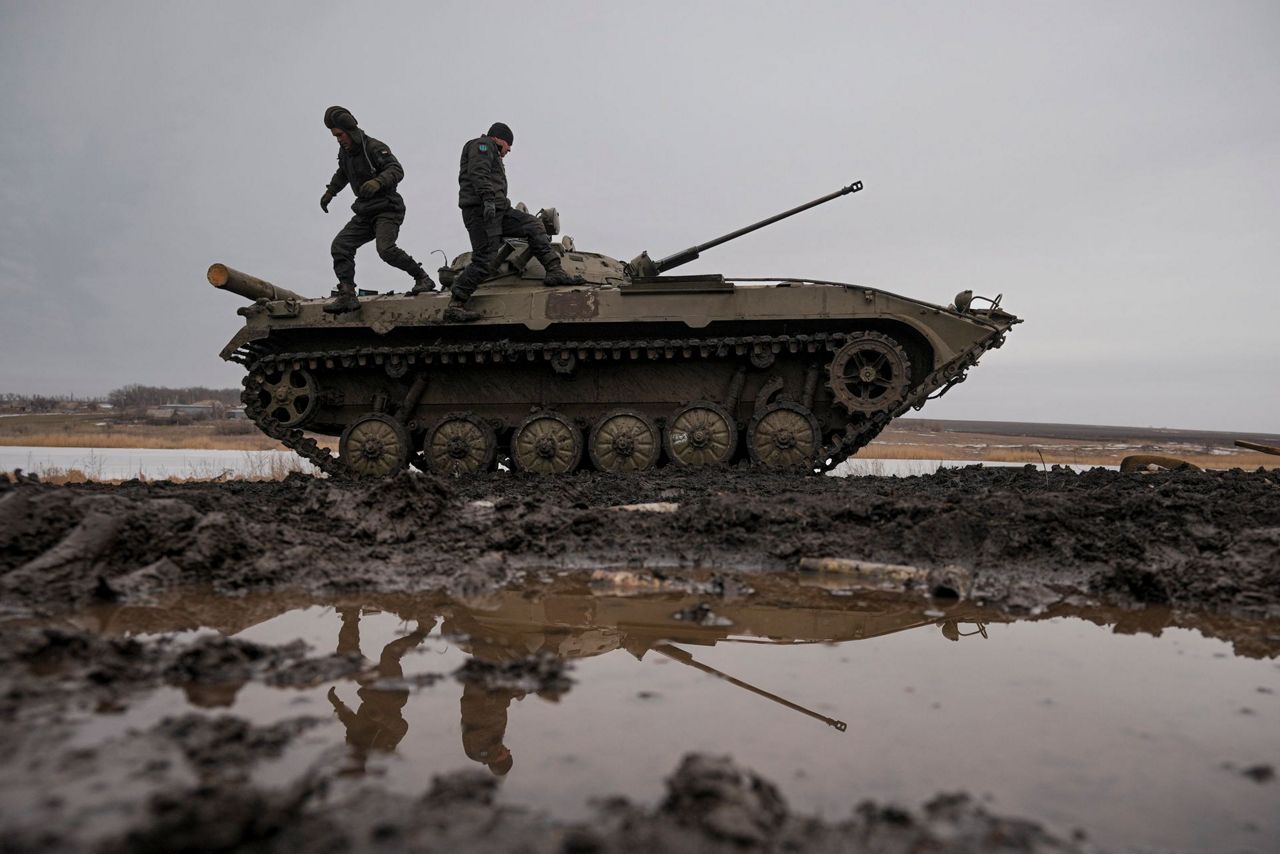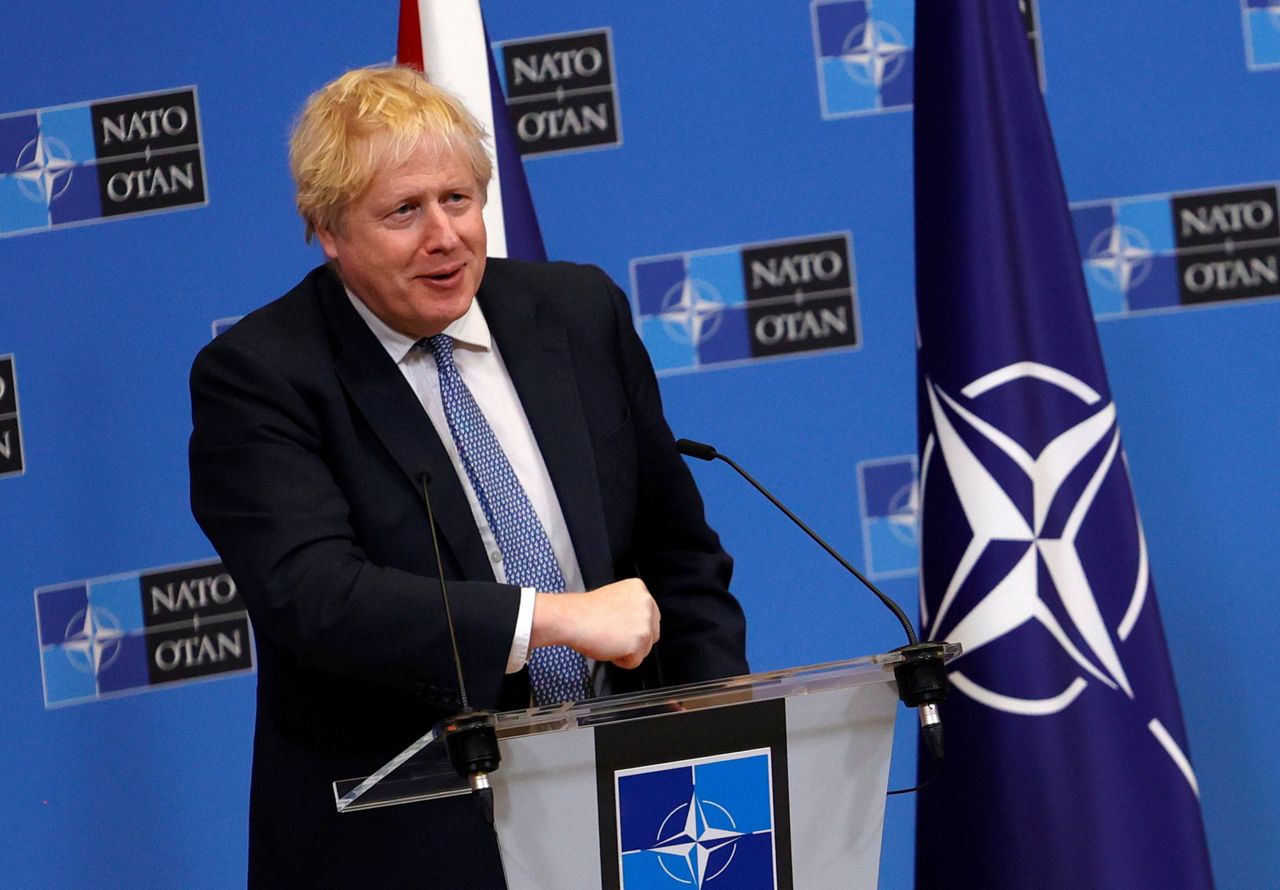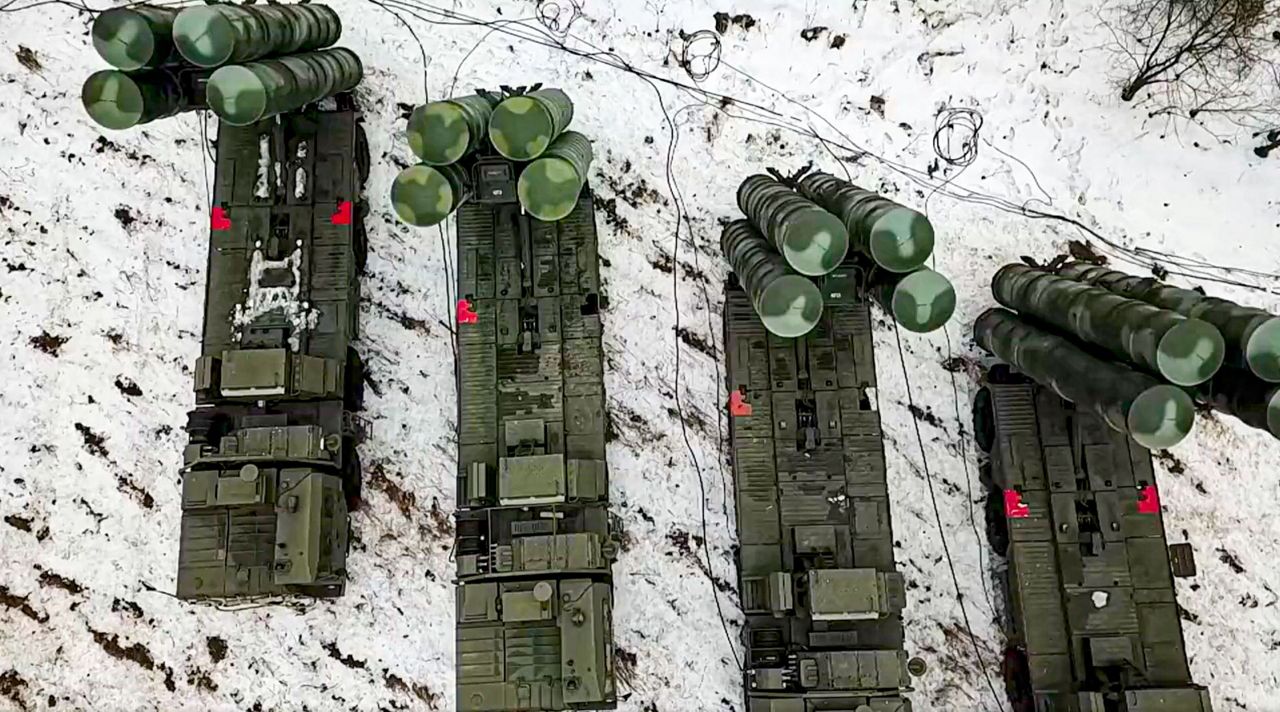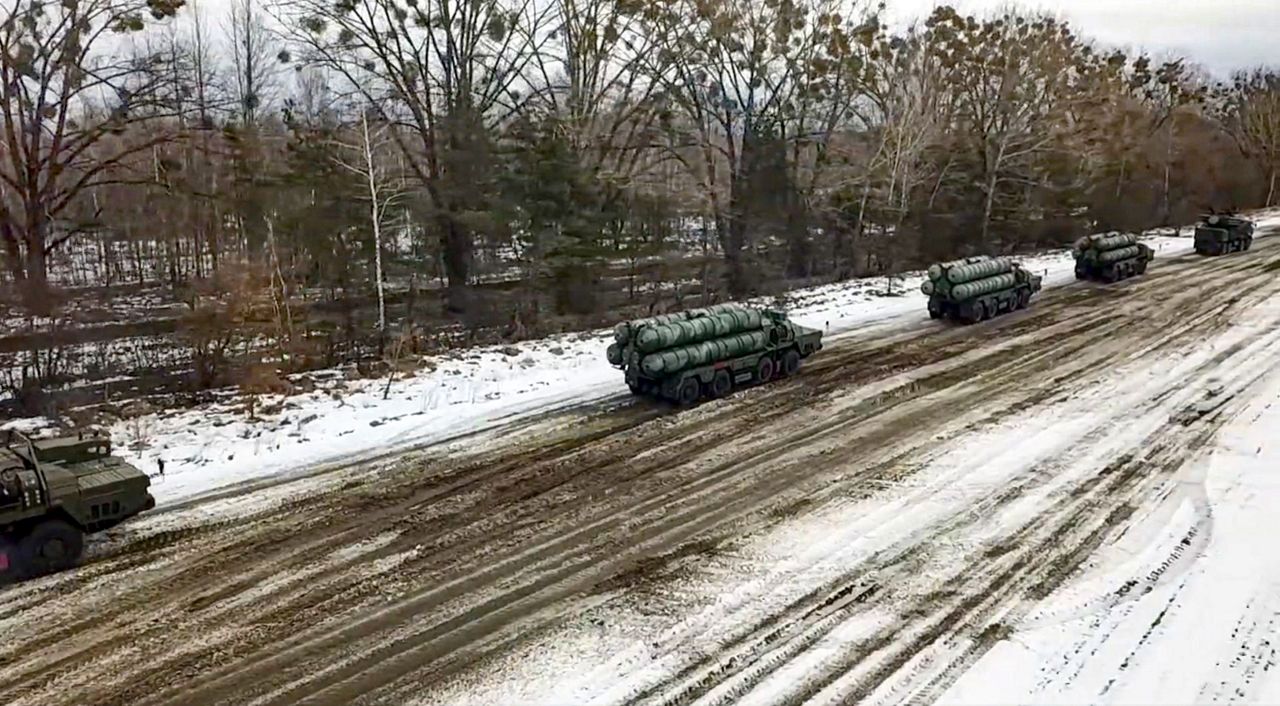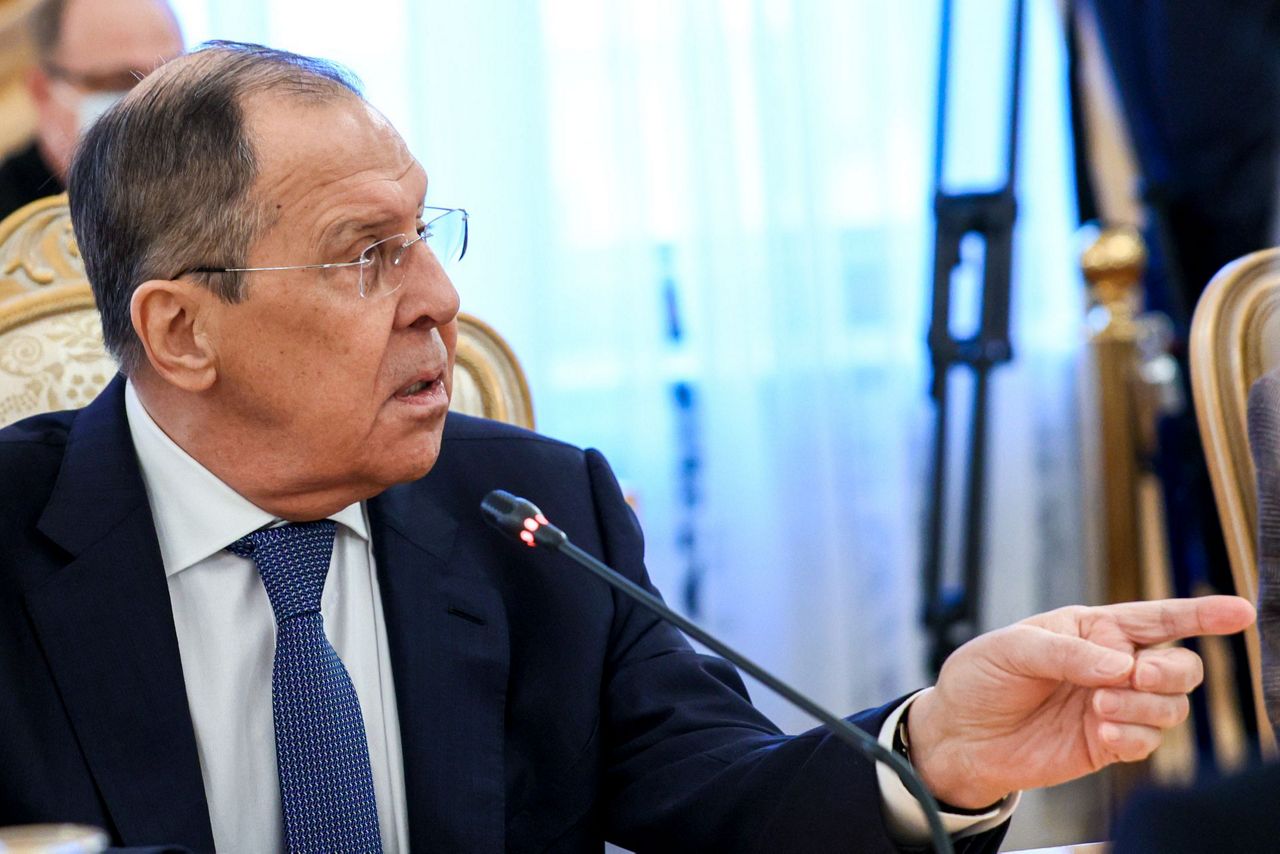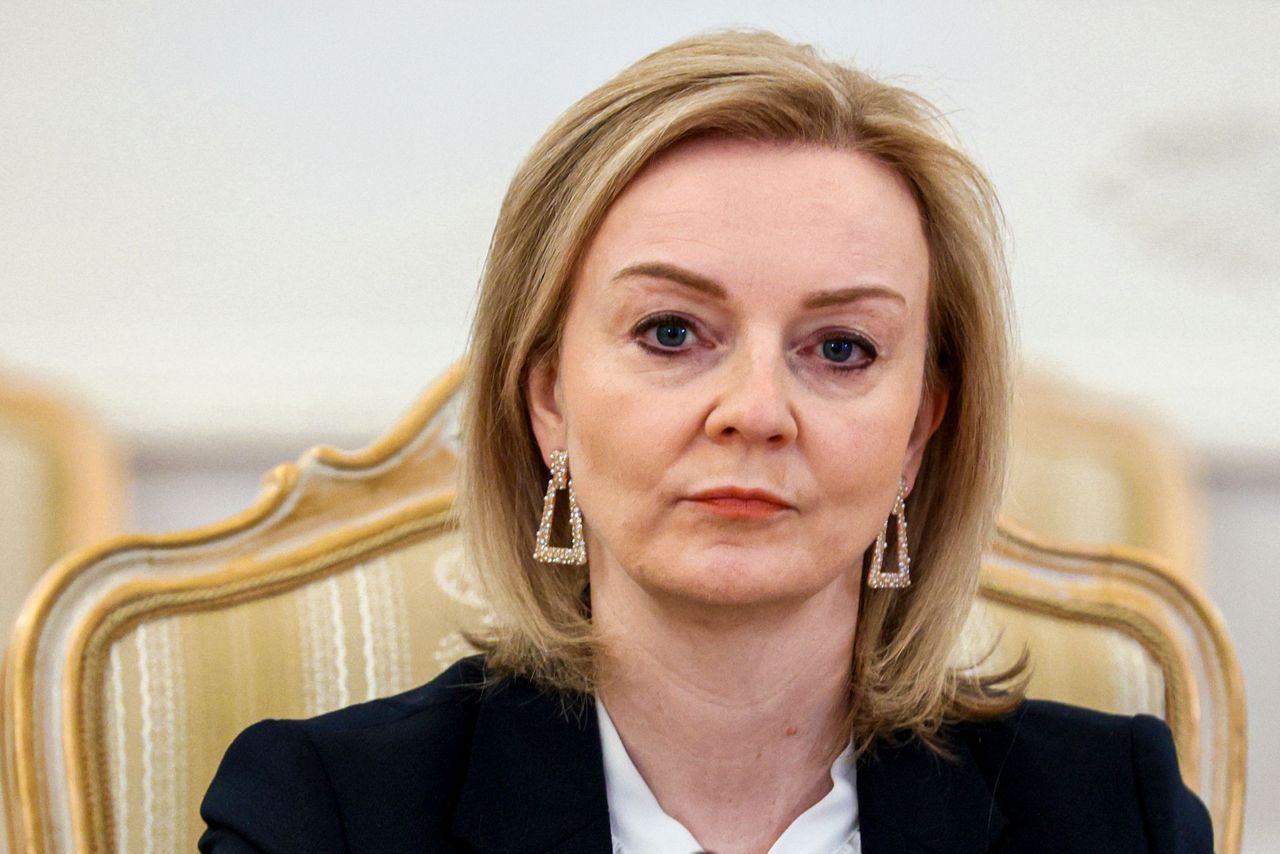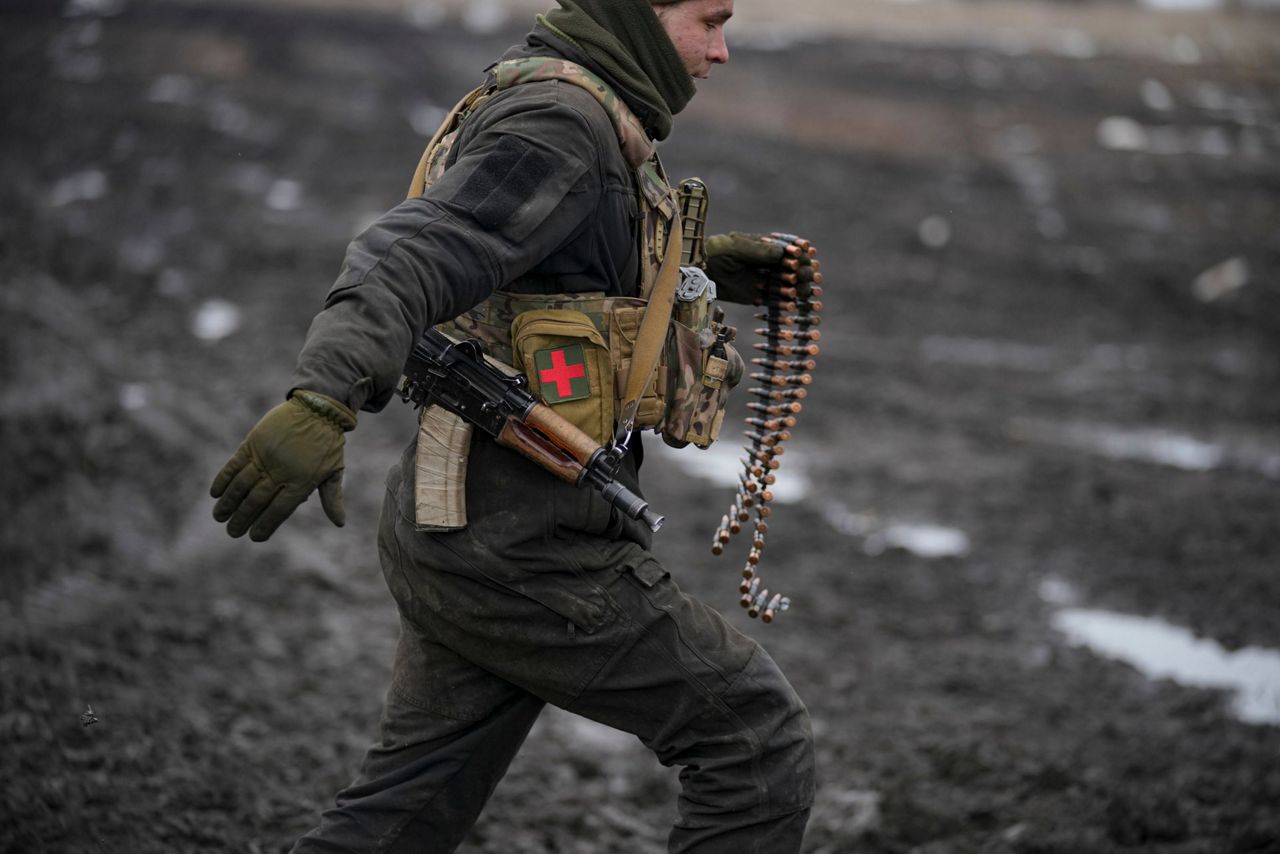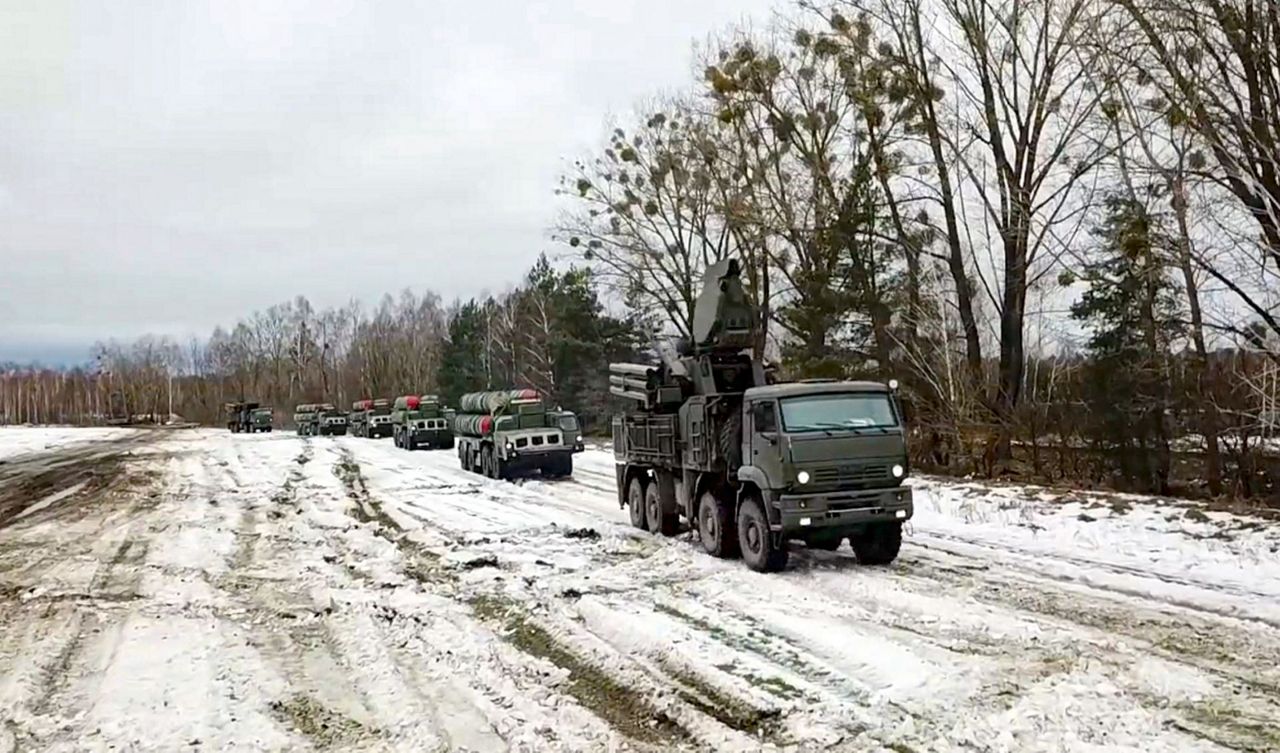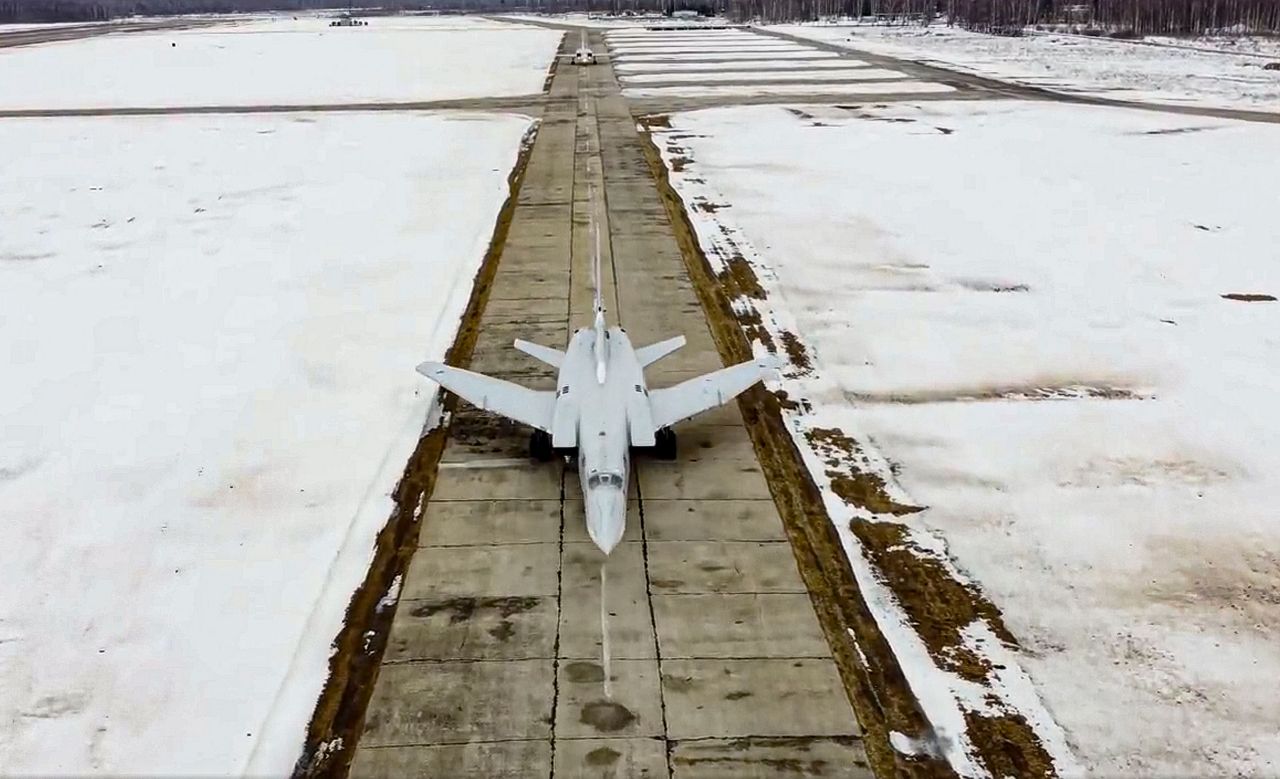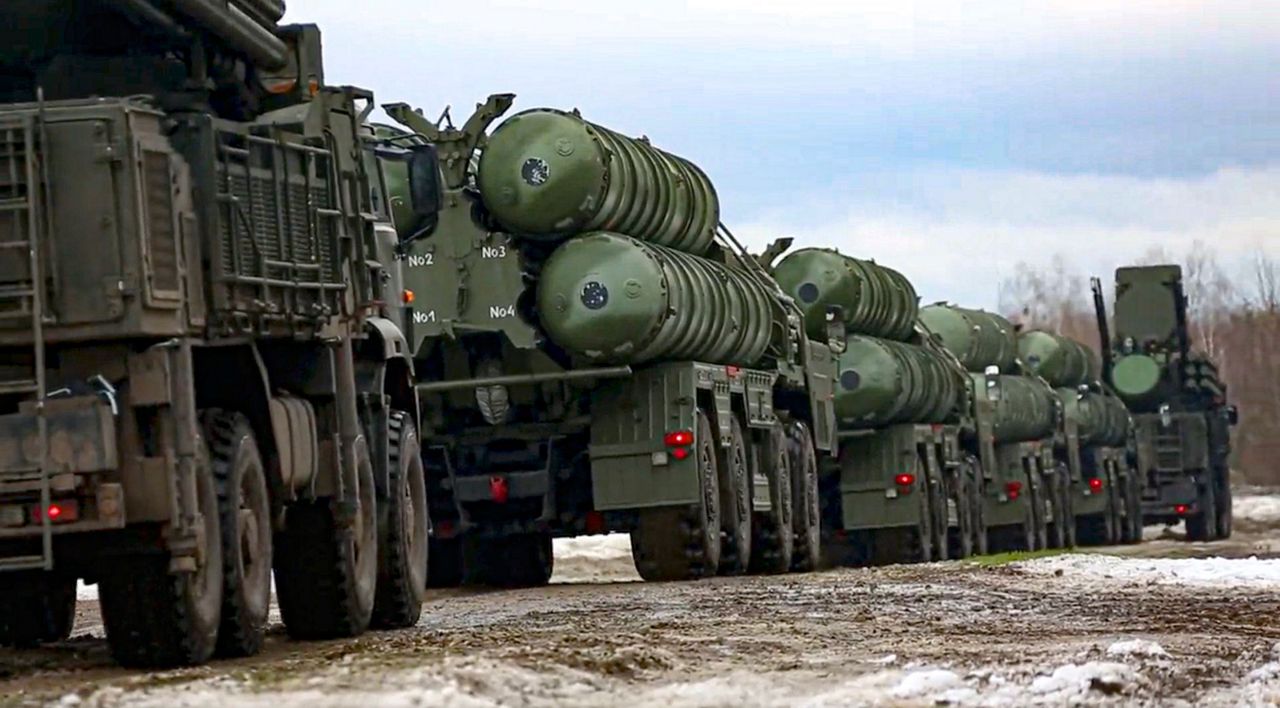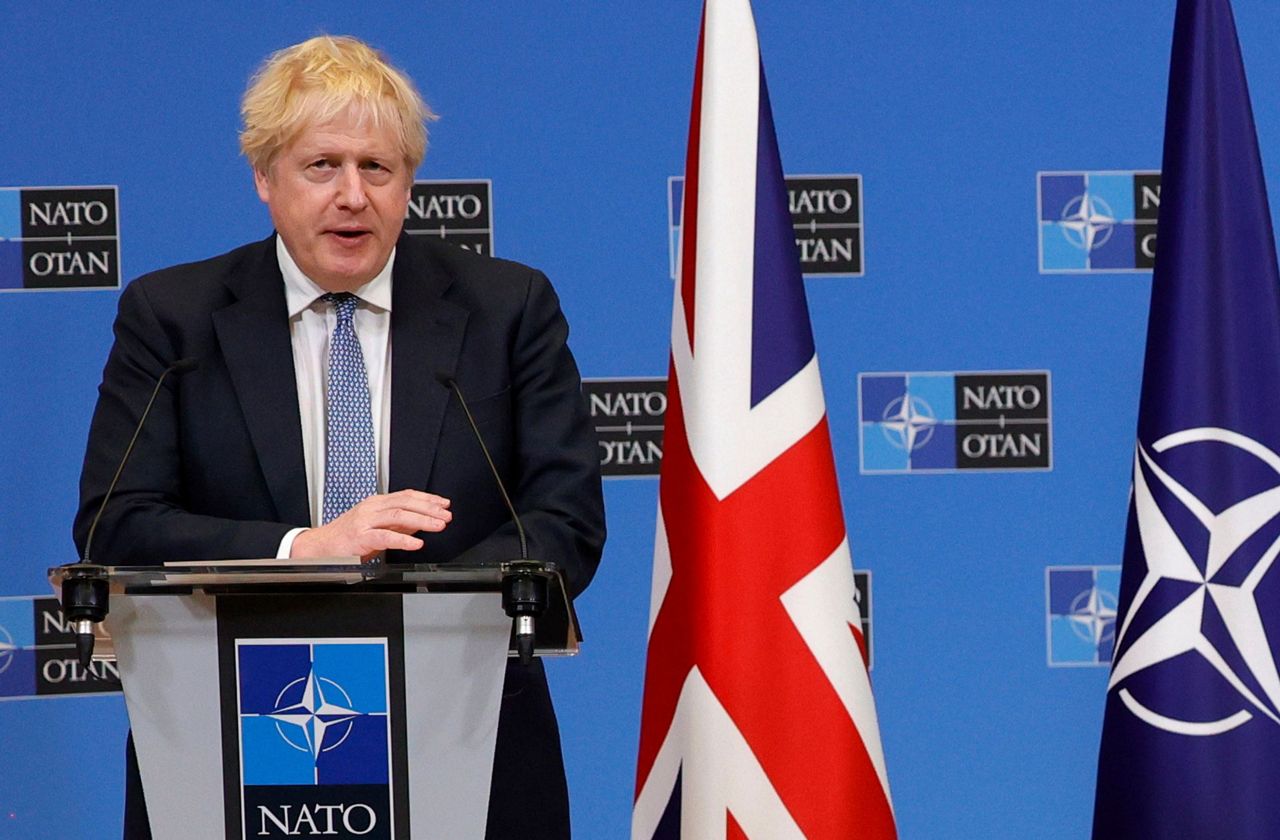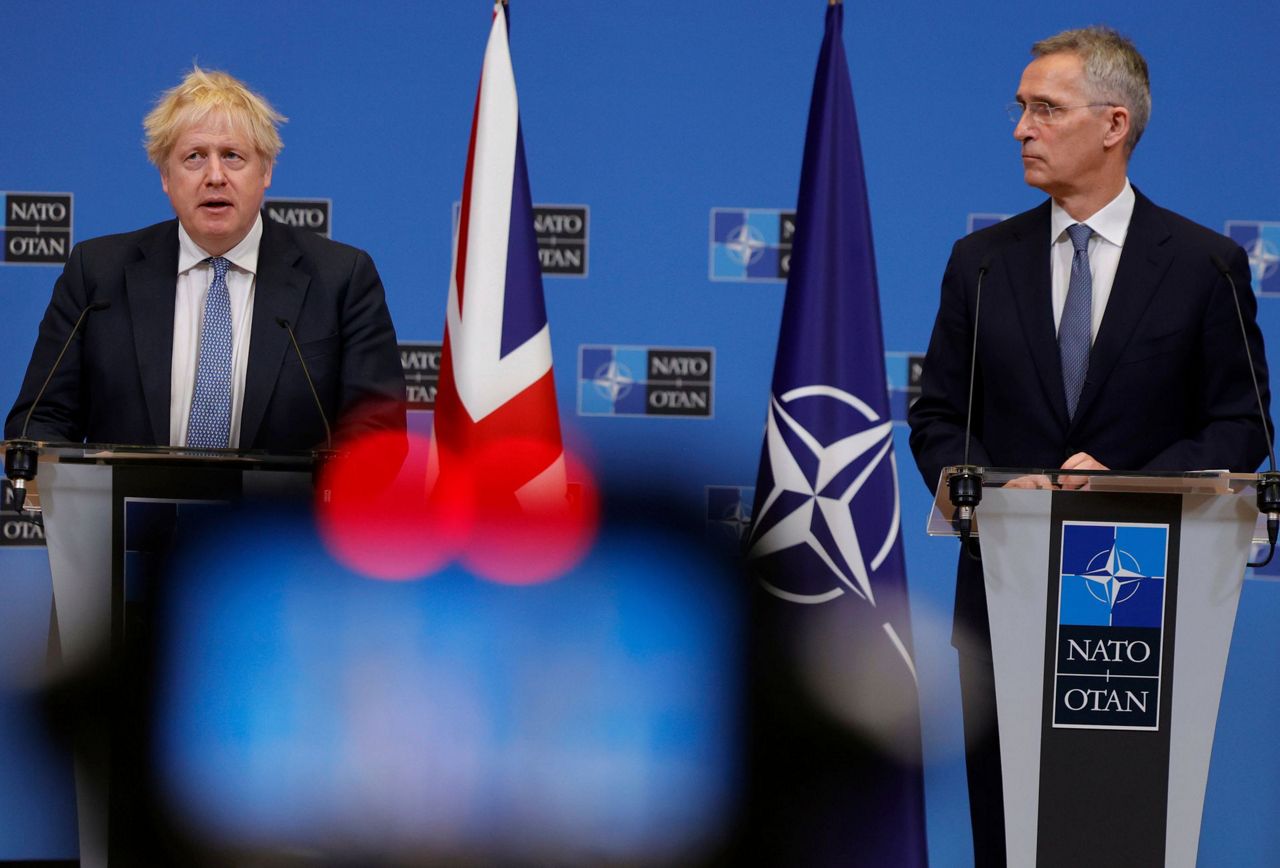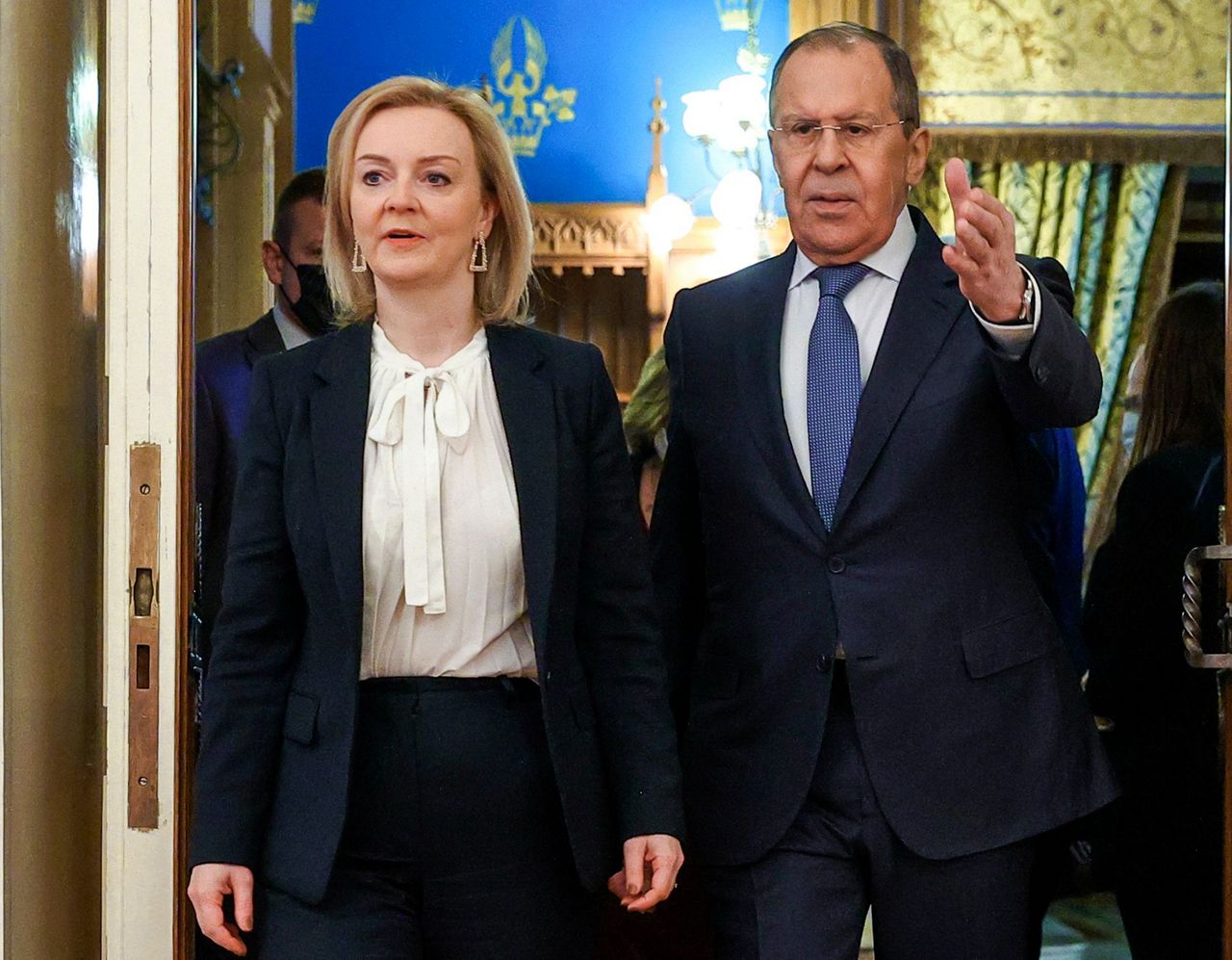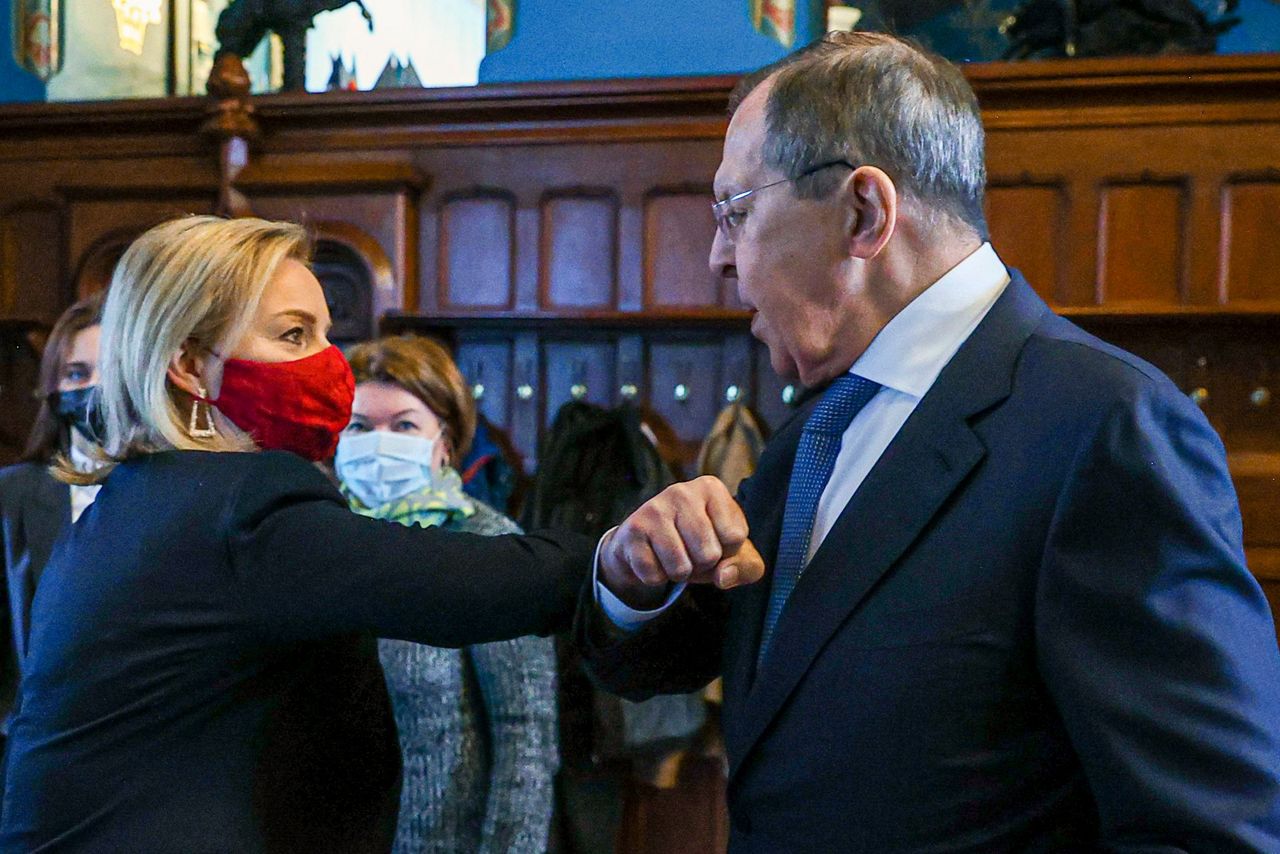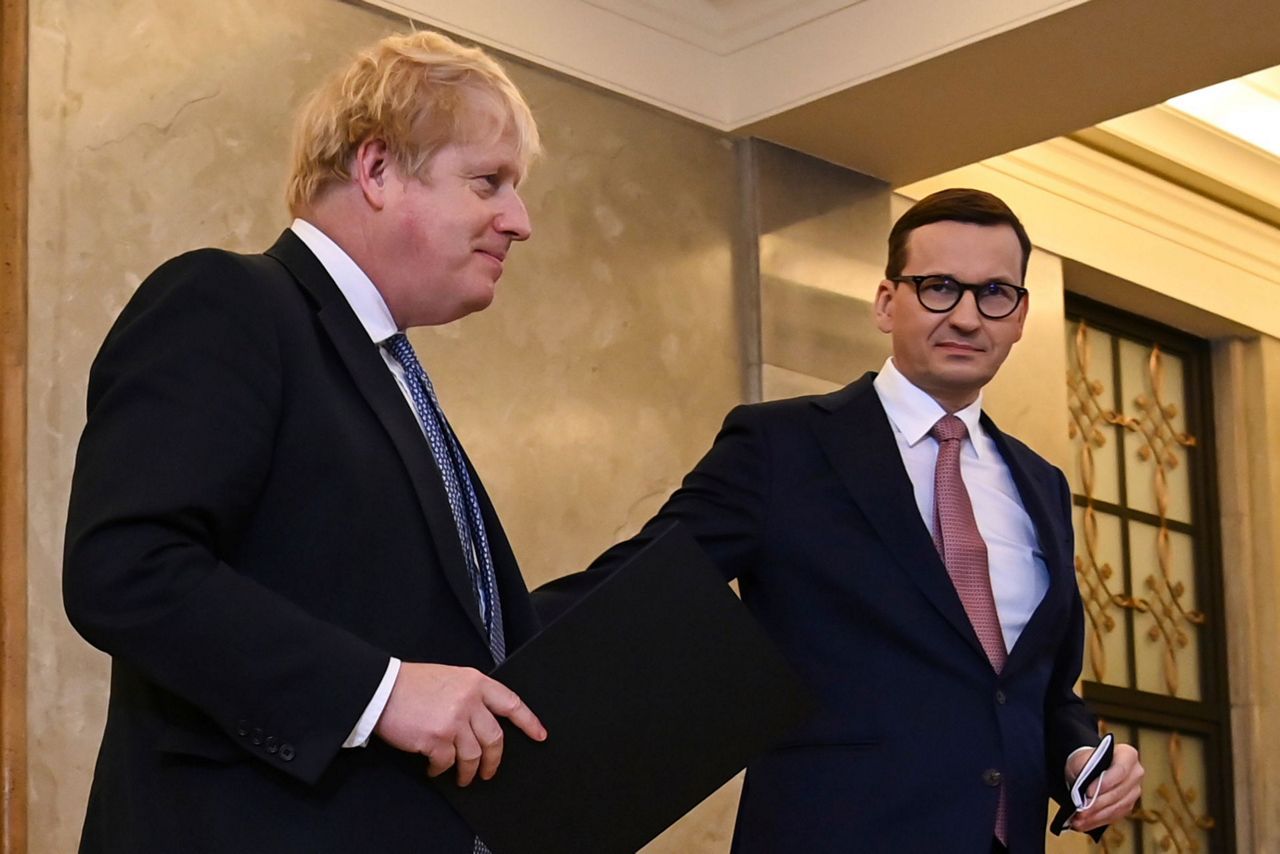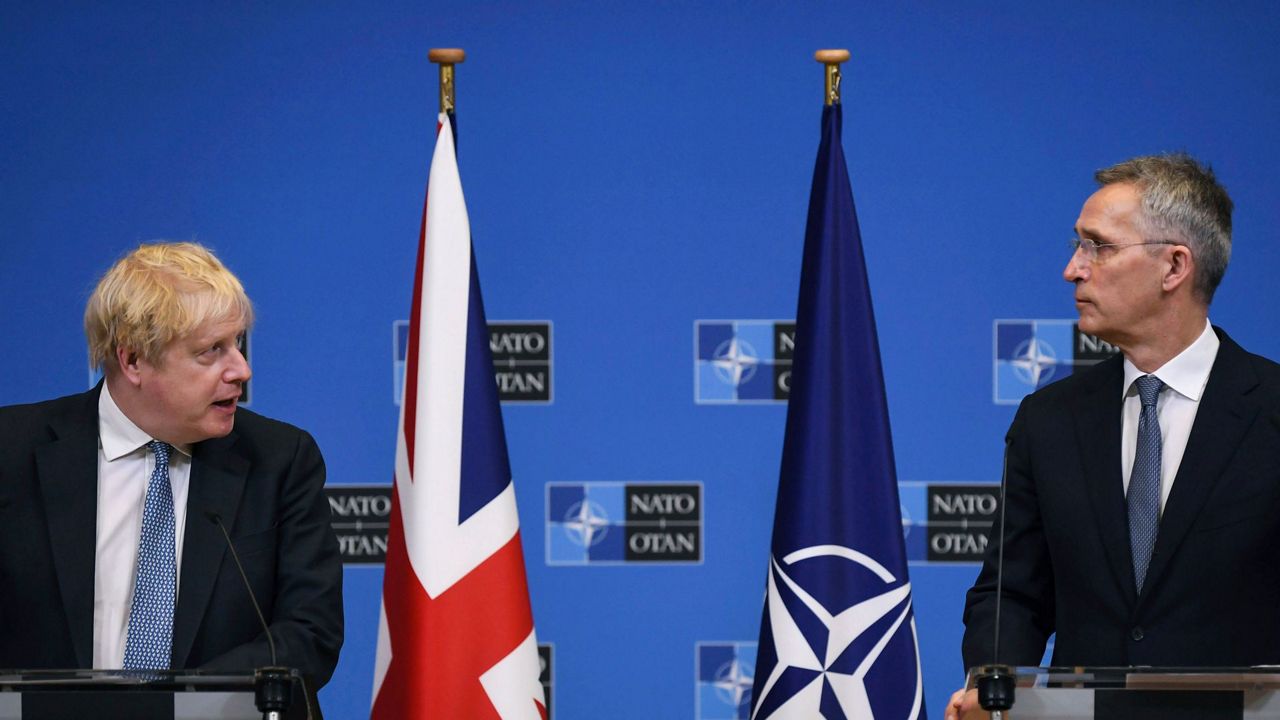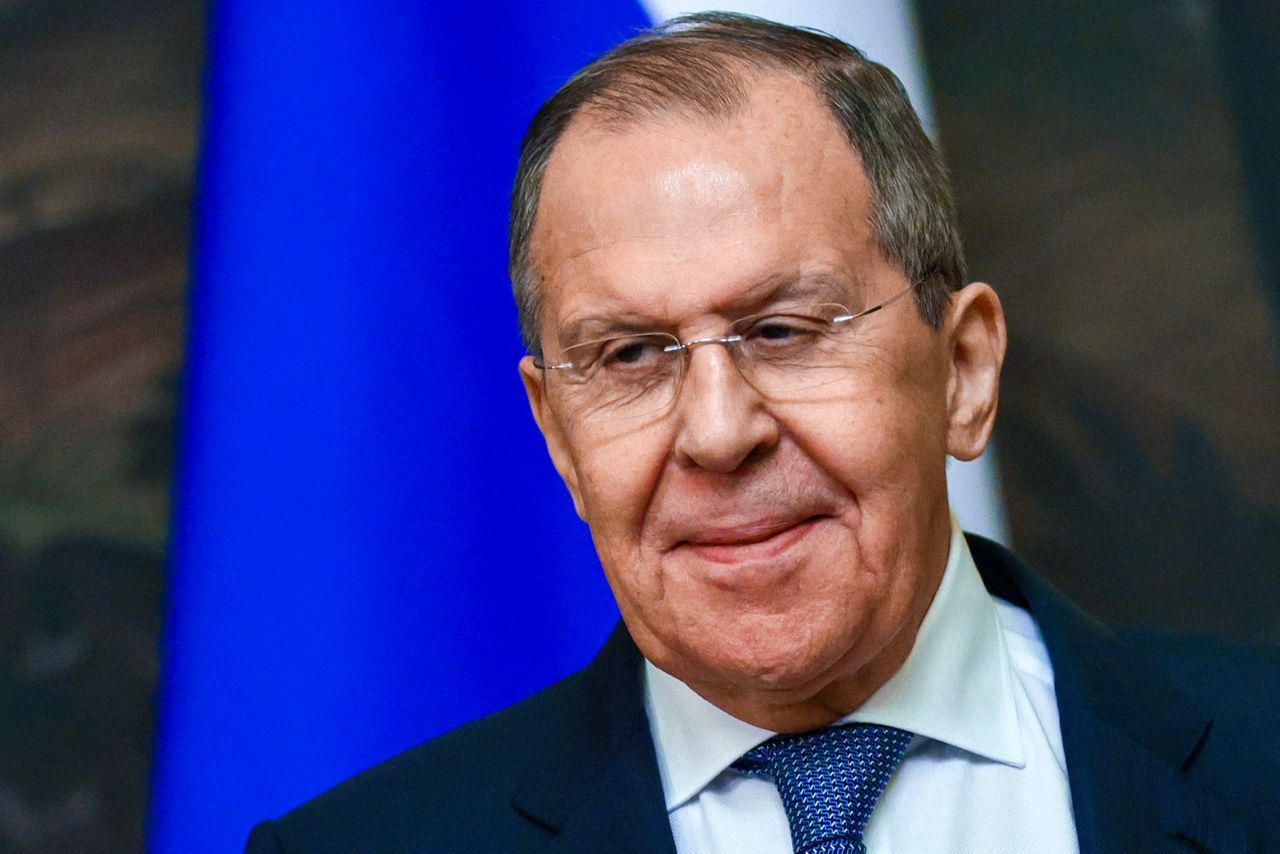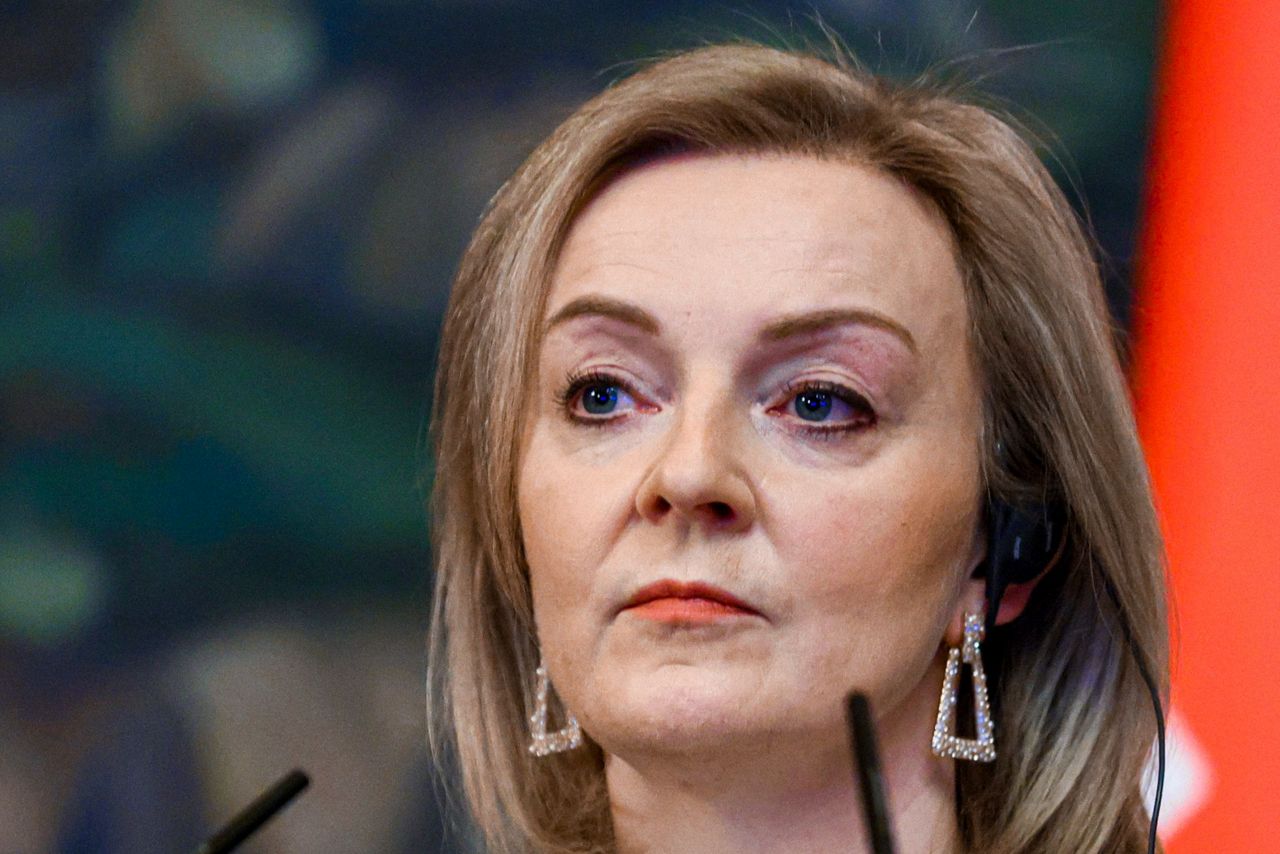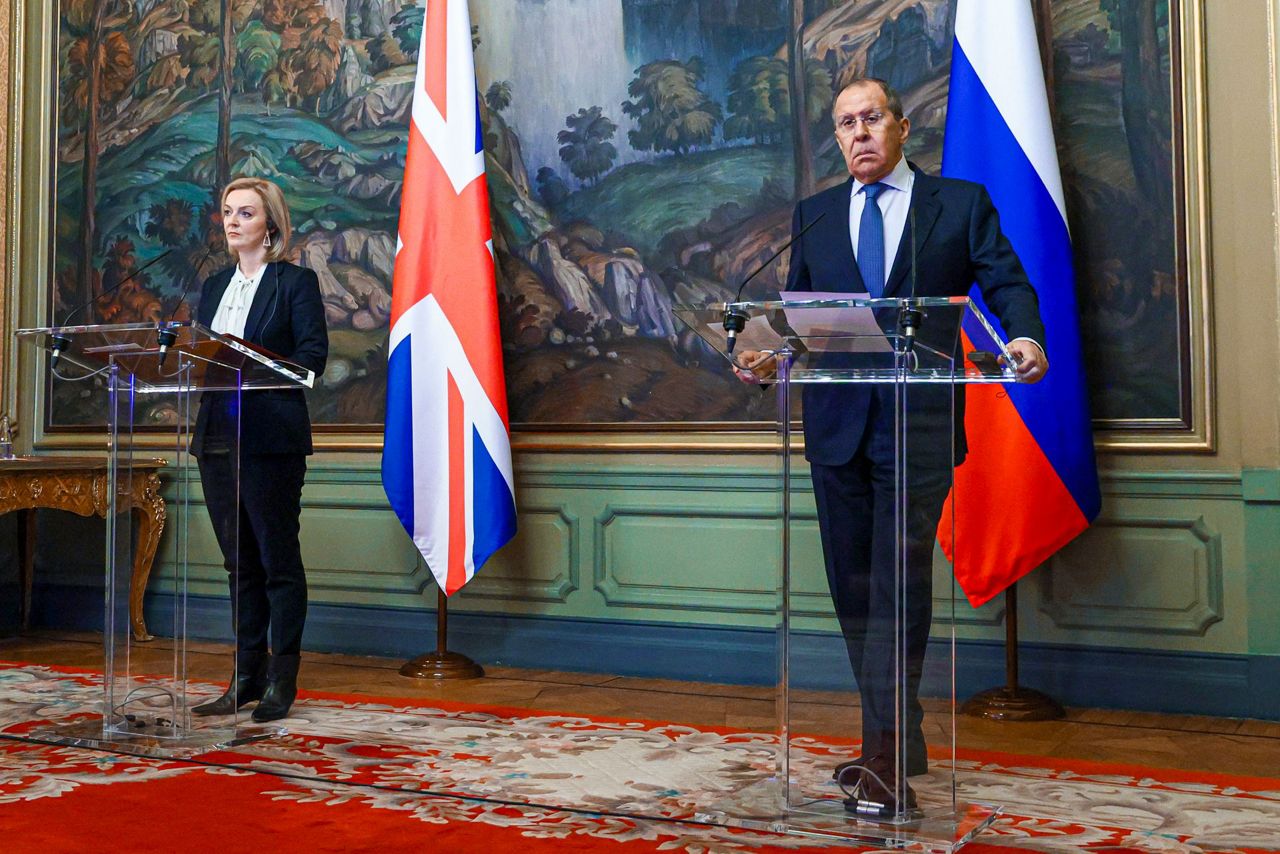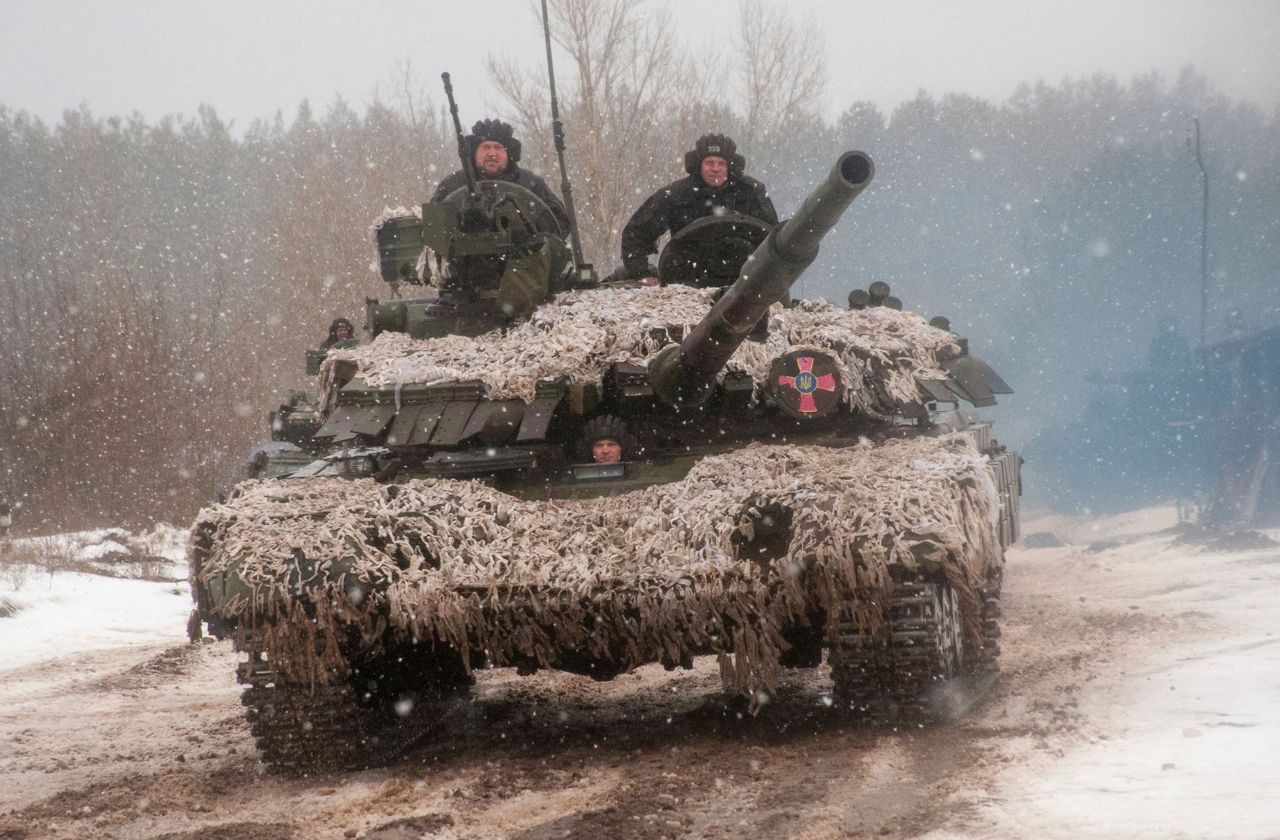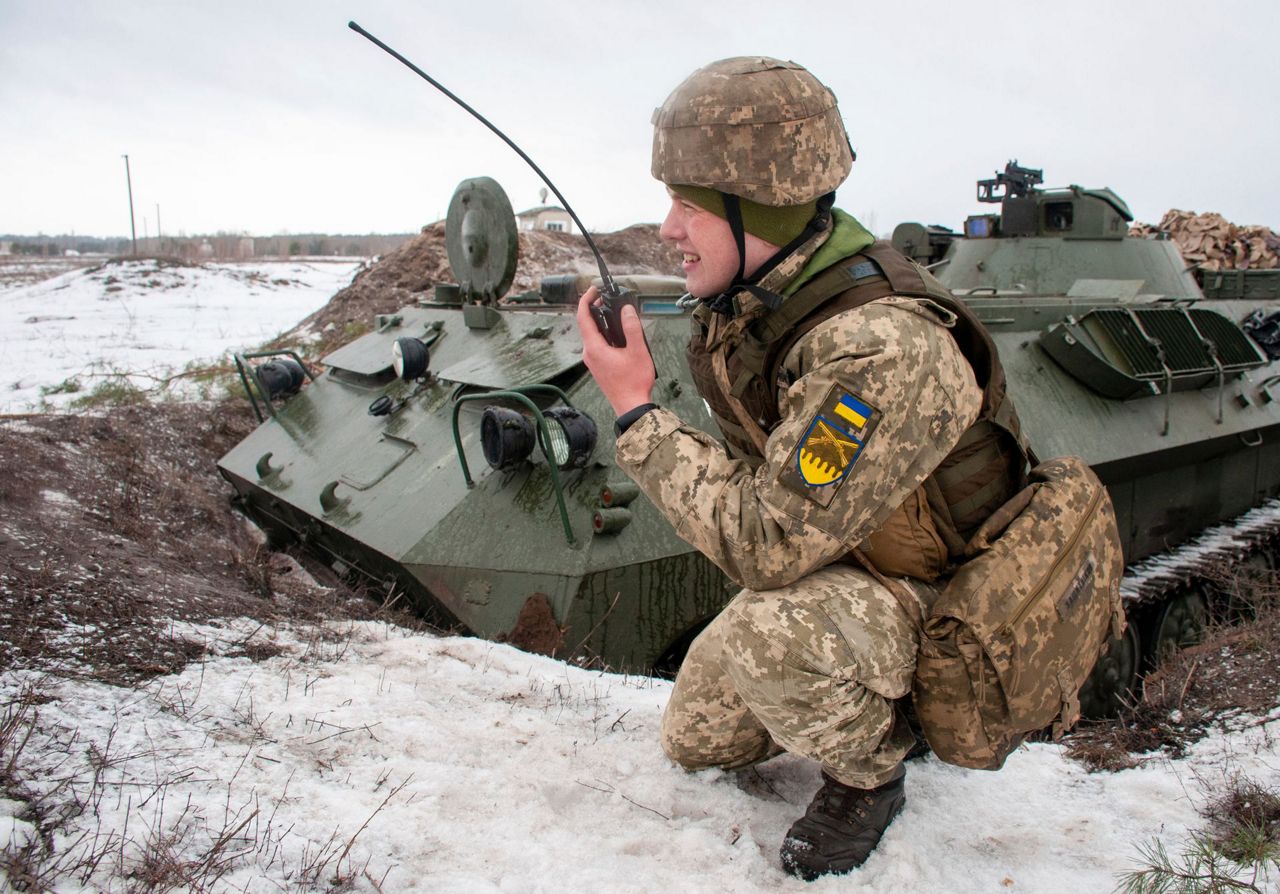MOSCOW (AP) — British Prime Minister Boris Johnson said Thursday the Ukraine crisis has grown into “the most dangerous moment” for Europe in decades, while his top diplomat held icy talks with her Moscow counterpart who said the Kremlin won’t accept lectures from the West.
Amid the deadlock, Russian forces held sweeping maneuvers north of Ukraine in Belarus, part of a buildup of over 100,000 troops that has stoked Western fears of an invasion.
NATO also has stepped up military deployments to bolster its eastern flank, with the U.S. sending troops to Poland and Romania. A British Royal Air Force jet carrying 350 troops landed Thursday in Poland in a move that followed London sending anti-tank missiles to Ukraine to help boost its defenses.
“This is probably the most dangerous moment, I would say in the course of the next few days, in what is the biggest security crisis that Europe has faced for decades, and we’ve got to get it right,” Johnson said at NATO headquarters in Brussels.
Johnson, who later flew to Warsaw to meet with Poland's prime minister, said he believes President Vladimir Putin has not yet decided what he might do with Ukraine, adding that the West must use “sanctions and military resolve plus diplomacy."
“Poland and the U.K. won’t accept a world in which a powerful neighbor can bully or attack their neighbors," he said before meeting the British soldiers in Poland.
Johnson told British broadcaster that if the Russians “want less NATO on their western borders, as it were, this is exactly the wrong way to go about it.”
“We stand on the edge of a precipice and things are as dangerous as I have seen them in Europe for a very, very long time," he said, adding that it's up to Putin "to disengage and de-escalate.”
Speaking in Moscow, Putin said Russia was continuing a series of talks with the U.S. and its allies and is working on a reply to Western security proposals.
NATO Secretary-General Jens Stoltenberg said he sent a letter to Russian Foreign Minister Sergey Lavrov repeating an invitation to a series of talks on improving European security.
Lavrov set a stern tone for his talks in Moscow with U.K. Foreign Secretary Liz Truss, who again warned Russia that attacking its neighbor would “have massive consequences and carry severe costs.” She urged the Kremlin to abide by international agreements that commit it to respecting Ukraine’s independence and sovereignty.
Lavrov rejected Western worries about the Russian troop buildup as “sheer propaganda” and noted that Moscow won't stand for lectures.
“Ideological approaches, ultimatums and moralizing is a road to nowhere,” he said, noting that his talks with Truss marked the first meeting of the countries' top diplomats in more than four years as Russia-U.K. ties have been ravaged by the 2018 poisoning of former Russian spy Sergei Skripal in England, along with other tensions.
Russia says it has no plans to invade Ukraine but wants the West to keep Ukraine and other former Soviet countries out of NATO. It also wants NATO to refrain from deploying weapons there and roll back alliance forces from Eastern Europe. The U.S. and NATO flatly reject these demands.
Truss reaffirmed a call for Moscow to pull back its troops, while Lavrov rejected the demand as inappropriate and pointed to British and NATO military buildups in Eastern Europe.
The daily Kommersant reported that as part of the tense exchange, Lavrov emphasized Moscow’s right to deploy its forces on its own territory and asked Truss if she recognizes the Voronezh and Rostov regions in southwestern Russia as part of the country, to which she answered, “no.” Asked about the gaffe, Truss told the Russian news outlet RBC that she thought Lavrov was referring to territories in Ukraine but then confirmed that the regions that he mentioned were part of Russia.
At a frosty briefing afterward, Lavrov said he was disappointed with the meeting, which he described as a “conversation between deaf and dumb.” He said Truss ignored Russian arguments, reflecting what he described as an “egoistic” stand.
He mocked claims that Russia was waiting for the ground to freeze to send tanks into Ukraine, saying the British side was as unreceptive to Moscow's arguments as the frozen soil.
Russia's top diplomat alleged that Western politicians were fanning tensions over Ukraine for domestic political gain. Russia has always planned to move back its troops after the maneuvers, Lavrov said, and once it does, “the West will raise an uproar and claim that it has forced Russia to de-escalate."
“It's selling hot air,” he snapped.
Russia’s buildup includes deploying troops on the territory of its ally Belarus for sweeping joint drills that entered a decisive phase Thursday and will run through Feb. 20. The Ukrainian capital is located about 75 kilometers (47 miles) south of the Belarus border.
Gen. Mark Milley, chairman of the U.S. Joint Chiefs of Staff, spoke Thursday with his Belarusian counterpart about regional security. Milley’s office said the call facilitated communication to “reduce chances of miscalculation and gain perspectives on current European security.”
Belarus' authoritarian President Alexander Lukashenko, who bolstered defense ties with Moscow amid Western sanctions over his crackdown on domestic protests, played down fears of hostilities. "I'm certain there will be no war — we all have grown too accustomed to comfort,” he said.
Sviatlana Tsikhanouskaya, the exiled opposition leader who challenged Lukashenko in a 2020 election, denounced the drills as adding to tensions and drawing Belarus into a potential conflict.
Ukraine on Thursday protested Russian naval drills in the Black and Azov seas as hampering commercial shipping. Defense Minister Oleksii Reznikov urged a strong Western response, tweeting that “when (Russian) ships can’t enter world’s ports, they’ll understand the price of their impudence.”
The Kremlin responded that the exercises are in line with international maritime law.
Amid the West's invasion warnings, Ukraine has sought to project calm, concerned about destabilizing its fragile economy.
“We believe that the concentration of troops near the border is part of psychological pressure from our neighbor,” President Volodymyr Zelenskyy told business leaders. “We have enough resources and weapons to protect our country.”
Russia and Ukraine have been locked in a bitter conflict since 2014, when a popular uprising drove Ukraine’s Kremlin-friendly leader from office. Moscow responded by annexing Crimea and then backing a separatist insurgency in eastern Ukraine, where fighting has killed over 14,000 people.
A 2015 peace deal brokered by France and Germany helped end full-scale hostilities, but frequent skirmishes continue, and efforts to negotiate a political settlement have stalled. The Kremlin has accused Kyiv of sabotaging the agreement, and Ukrainian officials in recent weeks said that implementing it would hurt their country.
Foreign policy advisers from Germany, France, Russia and Ukraine held more talks Thursday in Berlin to try to reach a common interpretation of the 2015 agreement.
The talks are part of renewed diplomatic efforts to resolve the biggest security crisis between Russia and the West since the Cold War. U.S. Secretary of State Antony Blinken has met Lavrov in Geneva, while French President Emmanuel Macron met Putin in Moscow before heading to Kyiv this week.
German Chancellor Olaf Scholz, who discussed the standoff with U.S. President Joe Biden and plans to visit to Kyiv and Moscow on Feb. 14-15, noted Thursday that “what is at stake right now is nothing less than preventing a war in Europe.”
Meanwhile, U.S. lawmakers said they were at an impasse over negotiations on new sanctions against Russia. Republicans have been pushing for tougher, more immediate moves such as measures against the newly built Nord Stream 2 Russian gas pipeline to Germany, while Democrats want to make new sanctions conditional on a Russian attack on Ukraine and try to spare U.S. allies any economic collateral damage.
___
Associated Press writers Lorne Cook in Brussels, Robert Burns and Ellen Knickmeyer in Washington, Yuras Karmanau in Kyiv, Ukraine, Jill Lawless in London, Monika Scislowska in Warsaw, Poland, and Geir Moulson in Berlin contributed.
Copyright 2022 The Associated Press. All rights reserved. This material may not be published, broadcast, rewritten or redistributed without permission.



